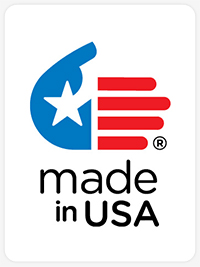Note: A conference call for media with Katie Fallow, FTC Deputy Director for Consumer Protection, and CFBP Deputy Director Steve Antonakes was held on July 23, 2014.
Katie Fallow and FTC staff took questions from the media about the case.
The Federal Trade Commission has taken action against six mortgage relief operations charging that defendants preyed on distressed homeowners by misrepresenting that they typically could lower homeowners’ mortgage payments and interest rates or prevent foreclosure, and illegally charging advance fees. In each case, the FTC has sought an order stopping the illegal practices and freezing the defendants’ assets pending the outcome of the litigation.
The FTC’s actions are part of a joint federal and state enforcement sweep, Operation Mis-Modification, with the Consumer Financial Protection Bureau, which brought charges against three other mortgage relief operations, as well as 15 state attorneys general and other state agencies, which announced 32 similar actions.
“Mortgage relief schemes like these target people who are already having financial problems and, all too often, inflict even further harm on them,” said Jessica Rich, Director of the FTC’s Bureau of Consumer Protection. “We’re determined to stop operations that illegally charge up-front mortgage relief fees or make empty mortgage relief promises.”
In today’s announced actions, the FTC has charged the defendants in each operation with violating the FTC Act and the Mortgage Assistance Relief Services (MARS) Rule, now known as Regulation O. The Rule bans mortgage foreclosure rescue and loan modification services from collecting fees until homeowners have a written offer from their lender or servicer that they deem acceptable.
Including the six cases announced today, the FTC has brought 48 actions against companies peddling fraudulent mortgage relief schemes since 2008. These law enforcement actions have helped tens of thousands of consumers who were victims of these scams, and have prevented tens of thousands more from becoming victims.
Danielson Law Group. The FTC has alleged that these Utah-based defendants touted a success rate that exceeded 90 percent and enticed consumers to pay hefty advance fees ranging from $500 to $3,900 – falsely promising that attorneys would negotiate loan modifications with substantially reduced mortgage payments using their special relationships with lenders or mortgage analysis reports produced by a proprietary software program. The defendants also urged homeowners to stop paying their lenders, and falsely promised full refunds if they did not obtain a loan modification, according to the FTC.
At the request of the FTC, a U.S. district court temporarily halted the operation, which allegedly took more than $35 million from distressed homeowners, and some of the defendants have stipulated to preliminary injunction with an asset freeze.
FMC Counseling Services, Inc. The FTC has alleged that from at least February 2011, this Fort Lauderdale, Fla.-based operation made false claims that it was affiliated with the federal government’s Making Home Affordable assistance program, and that it would renegotiate consumers’ mortgages, reducing them by several hundred dollars. Deceptively using the Federal Deposit Insurance Corporation’s logo and doing business as the “Federal Debt Commission,” the “Federal Mortgage Marketplace,” and the “Federal Assistance Program,” the defendants promised consumers their mortgage modifications would be completed quickly or that they could provide free mortgage refinancing. The defendants also told consumers to cease communications with their lenders, and to turn over their mortgage payments while refinancing was pending. Collecting more than $600,000 in payments from hundreds of consumers, the defendants did nothing for consumers and failed to apply any funds received from consumers to their existing mortgages. As a result, many consumers lost their homes as well as their mortgage payments.
At the request of the FTC, a U.S. district court temporarily halted the operation, and then entered a preliminary injunction with an asset freeze against Jonathan L. Herbert.
Lanier Law. The FTC has alleged that from at least 2011, this Jacksonville, Fla.-based operation typically told consumers that they would get a loan modification or that their chances of getting one was 85 percent to 100 percent. The defendants typically collected an upfront fee of $1,000 to $4,000, or an ongoing monthly fee of $500 or more. In some cases, according to the FTC, they also told consumers not to pay their mortgages while their supposed loan modifications were pending, and that they would conduct an audit of consumers’ mortgage documents to find errors or fraud committed by the lender.
In addition to charging the Lanier defendants with violating the FTC Act and the Mortgage Assistance Relief Services Rule, the FTC also charged them with violating the Do Not Call Rule by calling consumers who were on the Do Not Call list, and by failing to buy the Do Not Call Registry in any state where they operated.
At the request of the FTC, a U.S. district court judge ordered the Defendants to stop making misrepresentations about loan modifications and froze defendants’ assets to preserve the possibility of providing redress to consumers.
Mortgage Relief Advocates. The FTC has alleged that from at least August 2010, this California-based operation sold fraudulent mortgage assistance services on its websites and through telemarketing. The defendants tout their supposedly good relationships with lenders, and falsely claim their “forensic” loan audits will uncover violations in the Truth in Lending Act in 80 percent of the loans reviewed, and that these supposed violations can be used as leverage in modifying mortgage loans and reversing foreclosures, according to the complaint. Charging an up-front fee of $1,000 to $3,200, the defendants are alleged to have rarely provided the promised mortgage relief. The FTC has requested that the court enter a temporary restraining order.
Home Relief Foundation. The FTC has alleged that from approximately October 2010 to December 2013, this Austin, Texas-based operation preyed on financially distressed homeowners nationwide by making false promises that because of their affiliation with attorneys, their affiliation with a government program, their knowledge of the industry, and their relationships with mortgage lenders, Home Relief Foundation would be able to lower consumers’ interest rates and monthly mortgage payments. The defendants also allegedly told consumers to stop paying their mortgages – without disclosing that if they did so, consumers could face bankruptcy, risk losing their homes, or damage their credit ratings. Charging advance fees ranging from $500 to $4,000, the defendants collected more than $500,000 during the course of their operation, according to the complaint.
The defendants marketed their services mainly through websites they controlled, including homerelieffoundation.org, ghardinlaw.com, and patlonglaw.com.
At the request of the FTC, a U.S. district court judge ordered the Defendants to stop making misrepresentations about loan modifications and froze defendants’ assets.
CD Capital Investments. The FTC has alleged that from mid-2011, this Southern California-based operation often promised consumers would receive mortgage relief services within two to four months, and often claimed affiliation with the Obama Administration’s “Making Home Affordable Program,” with some other government entity, or with the consumer’s lender or servicer. They told some consumers they would receive a lower fixed-interest rate, a reduction in their mortgage payment, or a reduction in the principal balance of their mortgages, according to the complaint.
Telling consumers that lenders or servicers would not foreclose on their homes if they were in the process of obtaining a loan modification, and urging some not to pay their monthly mortgage payments or communicate with their lender or servicer, the defendants collected at over $1 million in revenues – by charging up-front fees of $495, supposedly to “process” the consumer’s application, and monthly fees that averaged about $399, for what they called “post application monitoring,” the FTC alleged.
Typically, consumers found that instead of getting mortgage relief, the defendants did not submit a loan modification application on their behalf, or the application was denied. Many consumers found themselves seriously delinquent and facing foreclosure, according to the complaint. The FTC will seek a preliminary injunction to halt defendants’ practices during the pendency of the litigation.
For consumer information about avoiding mortgage and foreclosure rescue scams, see Home Loans.
The Danielson Law Group complaint names as defendants Philip Danielson, LLC, doing business as Danielson Law Group and DLG Legal; Foundation Business Solutions, LLC, , doing business as emerchant, LLC, and Full Biz Solutions; Linden Financial Group, LLC; Acutus Law, P.C., formerly known as Danielson Silva Attorneys at Law, P.C.; Direct Results Solutions, LLC; Strata G Solutions, LLC; Philip J. Danielson; Tony D. Norton; Sean J. Coberly; Tanya Hawkins, also known as Tonya L. Hawkins; and Chad E. VanSickle. The complaint also names April D. Norton as a relief defendant. The FMC Counseling Services, Inc. complaint names as defendants Jonathan L. Herbert and the six companies he controls: FMC Counseling Services, Inc., FMC Review Corporation, FMC Consultants Group, Inc., FDC Assoc Group Inc, FDC Business, Inc., and NDR Group, Inc. The Lanier Law complaint names as defendants Michael W. Lanier and the companies he controlled: Lanier Law, LLC, Fortress Law Group, LLC, Surety Law Group, LLP, and Liberty & Trust Law Group of Florida, LLC. The Mortgage Relief Advocates complaint names as defendants Mortgage Relief Advocates, LLC, National Forensic Loan Audit Servicers, LLC, Evertree LLC, Keystone Real Estate, LLC, Pablo Rodriguez, and Michael Rodriguez. The Home Relief Foundation complaint names as defendants John DiCristofalo, his wife Amanda DiCristofalo, and the company they controlled, Home Relief Foundation, Inc. The CD Capital Investments complaint names defendants CD Capital Investments, LLC, CD Capital, LLC, GDS Information Services, Inc, Christian D. Quezada, Mireya Duenas, and Gabriel Drews Stewart.
The Commission vote authorizing the staff to file the complaints and seek additional relief against defendants in all six cases was 5-0. The FTC filed the Danielson Law Group complaint and request for a Temporary Restraining Order (“TRO”) and Preliminary Injunction in the U.S. District Court for the District of Nevada. On June 23, 2014, the court granted the FTC’s request for the TRO, and on July 3, 3014, some of the defendants stipulated to a Preliminary Injunction. The FTC filed the FMC Counseling Services, Inc. complaint and request for a TRO and a Preliminary Injunction in the U.S. District Court for the Southern District of Florida. On July 7, 2014, the court granted the FTC’s request for a TRO. On July 17, 2014, the court granted the FTC’s request for a Preliminary Injunction. The FTC filed the Lanier Law complaint and request for a TRO and a Preliminary Injunction in the U.S. District Court for the Middle District of Florida. On July 8, 2014, the court granted the FTC’s request for the TRO. The FTC filed the Mortgage Relief Advocates complaint and request for a TRO and a Preliminary Injunction in the U.S. District Court for the Central District of California. The FTC filed the Home Relief Foundation complaint and request for a Preliminary Injunction in the U.S. District Court for the Western District of Texas. On July 18, 2014, the court granted the FTC’s request for a Preliminary Injunction. The FTC filed the CD Capital Investments complaint in the U.S. District Court for the Central District of California.
NOTE: The Commission files a complaint when it has “reason to believe” that the law has been or is being violated and it appears to the Commission that a proceeding is in the public interest. The complaint is not a finding or ruling that the defendant has actually violated the law. The cases will be decided by the court.
The Federal Trade Commission works for consumers to prevent fraudulent, deceptive, and unfair business practices and to provide information to help spot, stop, and avoid them. To file a complaint in English or Spanish, visit the FTC’s online Complaint Assistant or call 1-877-FTC-HELP (1-877-382-4357). The FTC enters complaints into Consumer Sentinel, a secure, online database available to more than 2,000 civil and criminal law enforcement agencies in the U.S. and abroad. The FTC’s website provides free information on a variety of consumer topics. Like the FTC on Facebook, follow us on Twitter, and subscribe to press releases for the latest FTC news and resources.


